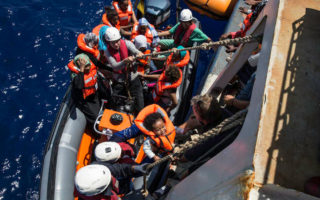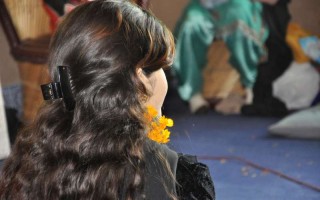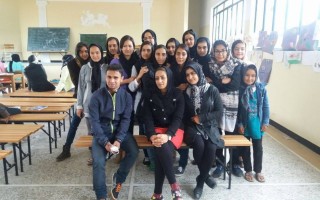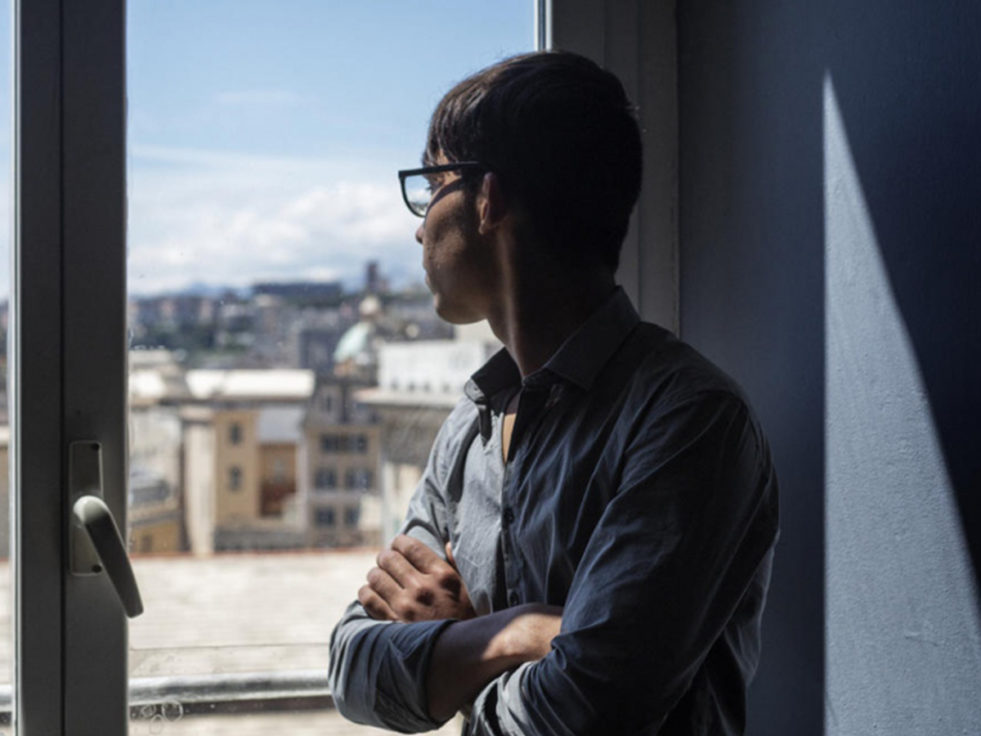
Farouk*, an Afghan boy, looks out over Genoa, Italy, from a reception facility where he was housed before moving to London under a family reunification programme. © UNHCR/Dario Bosio
Farouk, 15, fled Afghanistan and endured a difficult journey overland across 10 countries. Now he is reunited with his siblings in London thanks in part to help from UNHCR.
By the age of 16, most teenage boys have survived school, made friends and played some sport. Farouk* has done all that. He’s also walked 10 days through a forest, crossed Iran in the trunk of a car, braved the sea in a dinghy at night and endured months in detention.
On the way, he’s picked up five languages.
Farouk fled war in his home country of Afghanistan in early 2018. He crossed 10 countries overland, slept under bridges and finally wound up in Italy. There, he asked child protection staff at UNHCR, the UN Refugee Agency, how to reunite with his brother and sister living in the UK.
Now, in a head-spinning turn of events, he’s training in London to be a plumber. He’s ready to put a difficult past behind him.
“Life is like this: If you do something, go for it,” he said.
In some ways, Farouk’s story is typical. More than a quarter of the refugees and migrants who arrived in Europe via the Mediterranean routes so far this year are children, according to a report by UNHCR.
European States must step up their efforts to protect child asylum-seekers who have endured not only difficult and dangerous journeys but continue to face risks and hardship once in Europe, including unsafe accommodation, being incorrectly registered as adults, and a lack of appropriate care, UNHCR said in a report on Monday.
Many of those asylum-seekers arrived without their parents. Those children face extra difficulties when it comes to getting the help they need in Europe.
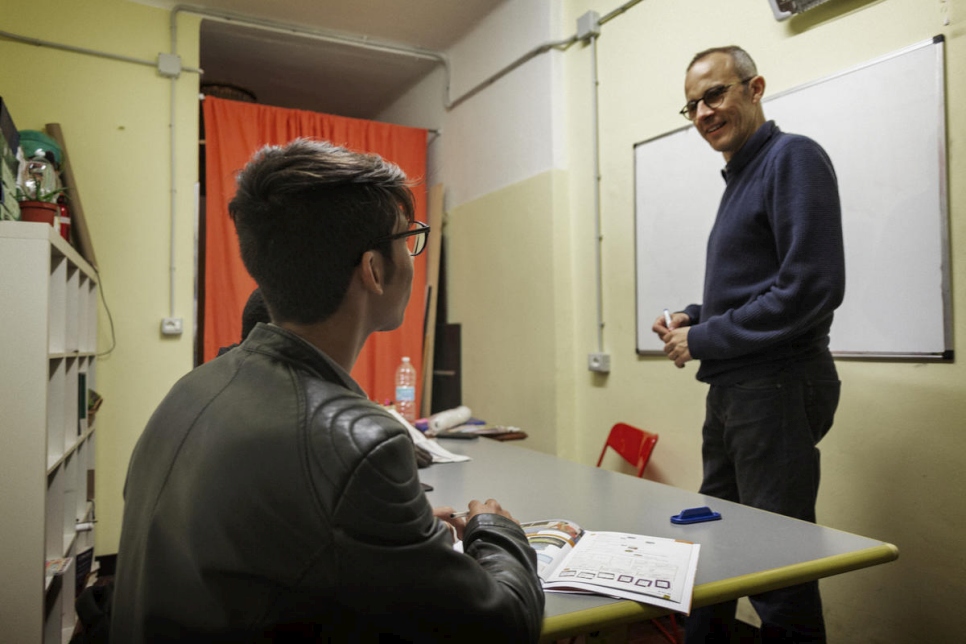
Farooq* studies Italian in Genoa, where he was living before completing the family reunification process. © UNHCR/Dario Bosio
UNHCR advocates that those minors be housed in age appropriate accommodation centres. It also says they should have accessible information about asylum procedures, support from trained guardians or social workers, better access to education and quicker transfer where appropriate to join family members in Europe.
“Mother told me: ‘Go. Save your life.’”
Sitting in a cafe in east London, Farouk is reluctant to describe the violence that forced him to leave his hometown of Kunduz in northeastern Afghanistan.
“My life was in danger … My mother told me: ‘Go, save your life’.” She hoped he could join his brother and sister, who had left years before for the UK.
He took a pick-up truck to Pakistan and walked to Iran over a mountain. It was hot and thirsty. He begged another man to give him a drink from his water bottle. In the end, he got only a bottle-top full. It was better than nothing, but only just.
Crossing Iran took 10 days, mainly spent packed into the trunks of cars with other people to avoid detection.
“It was horrible. One time I’m near to die,” he said.
He spent three months in detention in a cell with adults. Prison food was boiled vegetables and rice.
Once released he went to the Aegean coast and took an inflatable boat at night to Greece. The experience was terrifying, he said. He walked with a group through part of the Balkans, spending 10 days sleeping rough, drinking water where he could find it and eating plants from the forest to survive.
In Italy, things changed for the better. In October 2018, a UNHCR Child Protection Officer met him in Ventimiglia. He had been sleeping on the streets for five days.
“This legal way is the best.”
“I had been living in the holes of the bridge under the train tracks. It was winter and I was cold … Every day at 5 pm I would go to the parking lot where some volunteers would give out free meals. It was the only time I ate,” he said.
UNHCR’s team at Italy’s northwestern border provides information to children like him and works to identify specific needs, referring them to Italian authorities for follow-up. At the time he had no idea that he had the right to request family reunification with his siblings in the UK.
His only guidance along the journey had been provided by other refugees. He agreed to be transferred to a reception facility for unaccompanied children while waiting for the procedure to be completed.
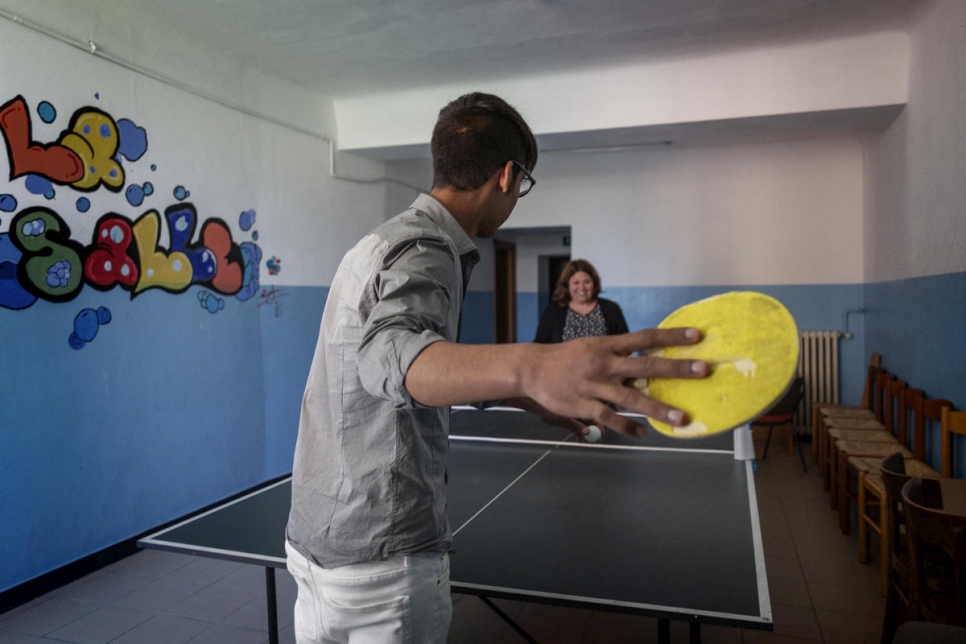
Farooq* plays table tennis at the reception facility in Genoa where he was living before completing the family reunification process. © UNHCR/Dario Bosio
Waiting times for family reunification can sometimes be long. It’s one of the main reasons why many unaccompanied children decide to abandon their reception facilities and continue their journey alone. The lack of information services aimed specifically at children amplifies their frustration and creates distrust in the system that is supposed to be protecting them.
“At first I wasn’t sure if I should believe what they were telling me, but then finally the ticket came for me to fly and I knew it was real. Now I have told all my friends they need to be patient. I waited seven months to be able to fly to the UK, but this legal way is the best way,” he said.
He arrived in London in May and was reunited with his brother and sister. It was a tearful reunion. Now he lives in a part of London so cosmopolitan that he fits right in. To the Urdu, Hindi, Pashto and Italian he can speak, he’s quickly added a new language: English, learned in part from watching YouTube videos of movies.
“Everyone tells me I’m strong because I made this journey, but … when you … are in danger you find the strength within yourself,” he said.
He also has a new sport too: cricket – played with local kids in a park on summer evenings. Farouk has had a long journey to get to London, but he’s just getting started.
* The speaker’s name has been changed to protect his identity.
(Additional reporting by Matthew Mpoke Bigg in London)
Originally published on UNHCR on 17 October 2019



